Over 30 years of anarchist writing from Ireland listed under hundreds of topics
Economy
The Budget & The Rich
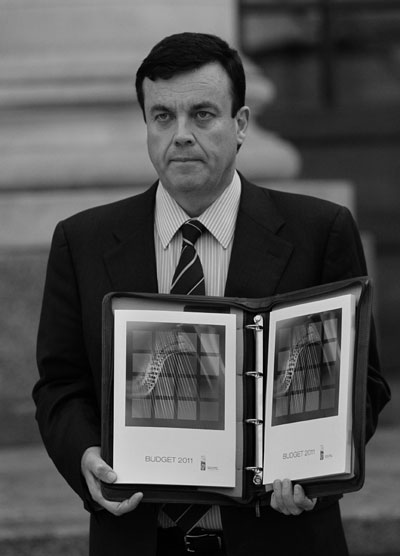 The government’s economic think-tank, the ESRI, wrote in the Irish Times in the aftermath of the budget that the measures taken over the past four years have been “strongly progressive” i.e. that they redistributed wealth from the rich to the poor. However, this is a somewhat convenient timeframe to apply and ignores the impacts of the measures announced in the 2011 budget.
The government’s economic think-tank, the ESRI, wrote in the Irish Times in the aftermath of the budget that the measures taken over the past four years have been “strongly progressive” i.e. that they redistributed wealth from the rich to the poor. However, this is a somewhat convenient timeframe to apply and ignores the impacts of the measures announced in the 2011 budget.
Default on bank debt say AFRI
AFRI calls for Ireland to default on banks debt. Development group asks "why should ordinary Irish citizens now pick up that tab?"
Andy Storey, AFRI chairman, is highly critical of the IMF intervention. He urged that the lessons of the IMFs behaviour in the other countries be learned. The IMFs intervention had left increased poverty , social inequality and reduced spending on education and health. He gave the example of Argentina as a country that had rejected the IMF after a deep crisis and had a sustained recovery afterwards.
The historical development of the global financial order under US hegemony
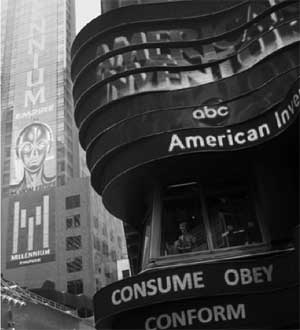 This article tells the story of the historical development of the regime of global financial order under US hegemony. It begins by examining how the centre of capital accumulation shifted from Europe to the US in the first half of the twentieth century, and how following World War II the global financial order became centred around the US through the Bretton Woods system. It then looks at how the Bretton Woods System was undermined, concentrating as much on the role of workers militancy as on the role of the Eurodollars market. After considering the response to the crisis of Bretton Woods, it concludes by looking at the Clinton boom, bringing us up to the current situation of the US’s current heavy dependence on foreign borrowing
This article tells the story of the historical development of the regime of global financial order under US hegemony. It begins by examining how the centre of capital accumulation shifted from Europe to the US in the first half of the twentieth century, and how following World War II the global financial order became centred around the US through the Bretton Woods system. It then looks at how the Bretton Woods System was undermined, concentrating as much on the role of workers militancy as on the role of the Eurodollars market. After considering the response to the crisis of Bretton Woods, it concludes by looking at the Clinton boom, bringing us up to the current situation of the US’s current heavy dependence on foreign borrowing
Global Political Repercussions of the capitalist crisis
As soon as the scale of the crisis became clear, all rhetoric about free-markets and competition vanished. Bankers, capitalists and right wing politicians were all suddenly huge believers in the role of the state and the importance of regulation.
The development of the capitalist crisis 2008 to 2009
The first 18 months of the crash from the Credit Crunch to the spread to the 'real economy.
The scientific case against inequality - review of The Spirit Level
 We all want a better world, but is it possible? The recently published book The Spirit Level joins a growing body of evidence for the viability of a better world.
We all want a better world, but is it possible? The recently published book The Spirit Level joins a growing body of evidence for the viability of a better world.
Dáil Vote will not give IMF/ECB deal political legitimacy – 1% Network Press Release
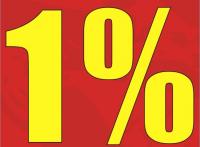 The 1% Network has sharply criticised the government for claiming that a vote by Dáil Éireann to approve the IMF-ECB deal would give it ‘political legitimacy’.
The 1% Network has sharply criticised the government for claiming that a vote by Dáil Éireann to approve the IMF-ECB deal would give it ‘political legitimacy’.
AIB bonus scandal descends into panto farce
AIB's timing last week was poor. Announcing that they were going to pay 40 million euro in bonuses to the very incompetents that got us into this mess on the same day as the Dáil was announcing savage cuts to unemployment and family benifits, was definitely negative PR.
Solidarity with the European peoples in struggle! - Joint statement by the European Anarkismo organizations
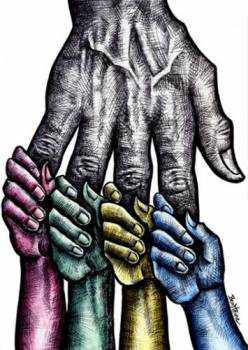 In recent weeks, the signs of anger among the peoples of Europe have been increasing: a general strike in Portugal, the huge September 29 strike in Spain, demonstrations of historic proportions in Ireland, the student movement in England, the enormous protests in Italy by factory workers and students and the growing mass movement against the privatization of water and, hopefully, the beginning of a lasting movement following the mobilizations over pension reforms in France. Though the slogans may vary from one country to the next, the revolt has the same origin: the peoples' refusal to pay for a crisis they did not cause, to have to put up with austerity measures by themselves, without the capitalists having to pay.The case of Ireland is emblematic - reduced social benefits, staff cuts in the public sector and cuts to public sector workers' pay, the extension of income tax to those who do not currently pay, the lowest-paid workers. But the government is not touching corporate tax, however, one of the lowest in Europe. The Irish people are refusing to bow down and tens of thousands of protesters took to the streets in late November.
In recent weeks, the signs of anger among the peoples of Europe have been increasing: a general strike in Portugal, the huge September 29 strike in Spain, demonstrations of historic proportions in Ireland, the student movement in England, the enormous protests in Italy by factory workers and students and the growing mass movement against the privatization of water and, hopefully, the beginning of a lasting movement following the mobilizations over pension reforms in France. Though the slogans may vary from one country to the next, the revolt has the same origin: the peoples' refusal to pay for a crisis they did not cause, to have to put up with austerity measures by themselves, without the capitalists having to pay.The case of Ireland is emblematic - reduced social benefits, staff cuts in the public sector and cuts to public sector workers' pay, the extension of income tax to those who do not currently pay, the lowest-paid workers. But the government is not touching corporate tax, however, one of the lowest in Europe. The Irish people are refusing to bow down and tens of thousands of protesters took to the streets in late November.
600 March Against Budget in Cork
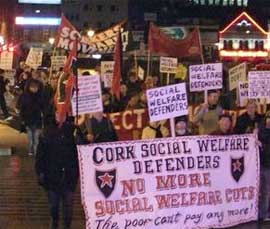 At just after 5 p.m. Wednesday evening, 600 angry marchers took to the streets of Cork city to demonstrate their opposition to the 2011 budget and the state's IMF- and EU-designed four-year plan. Marchers assembled on Patrick's Bridge for some time before 5, and when sufficient numbers had arrived, the crowd moved up-river to the nearby Emmet Place in front of the Opera House, from where the march departed, led by the banner of the Cork Social Welfare Defenders campaign.
At just after 5 p.m. Wednesday evening, 600 angry marchers took to the streets of Cork city to demonstrate their opposition to the 2011 budget and the state's IMF- and EU-designed four-year plan. Marchers assembled on Patrick's Bridge for some time before 5, and when sufficient numbers had arrived, the crowd moved up-river to the nearby Emmet Place in front of the Opera House, from where the march departed, led by the banner of the Cork Social Welfare Defenders campaign.

